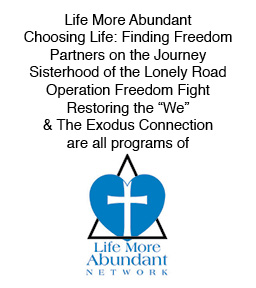One of the hardest things for people who struggle with pornography, affairs or other sexual compulsions to grasp is that sex is not their REAL problem. Yes, it’s true—as counter-intuitive as it seems—sexual addiction is NOT about sex.
It’s not the orgasm. It’s not the excitement. It’s not even the conquest. It’s the DIVERSION.
Maybe you’ve convinced yourself that you just like sex. Well, yeah! Sex is exciting. Sex feels good.
The truth is, we get addicted to things that we like. There’s just no payoff for us to continue behaviors or substances that don’t provide us with at least some enjoyment. (Have you ever heard of someone with a liver and onions addiction . . .or a public ridicule addiction?)
But, if that’s all there is to it, would liking sex—even a lot—really be enough to entice you to risk losing your family, job or self-respect? It’s highly doubtful.
If you struggle with sexual addiction (or any other type of addiction for that matter) there’s a lot more to it than just looking for a “high”—even if that’s what you’ve always told yourself you were doing. The truth is that your behaviors serve another very crucial purpose in your life. They, very successfully, keep you from having to face painful thoughts, memories and feelings.
THE REAL PROBLEM IS . . .
Because of our various life experiences, our subconscious mind has decided that certain situations, people and even feelings are dangerous to our physical or emotional well-being. Maybe they did pose an actual threat at some point in our lives, but not so much, anymore. Our subconscious is just slow to embrace new information and let go of old determinations.
So, if our brain senses we may be at risk of a rerun of one of those bad experiences, it sends us (in the form of cravings) the message that we need to go bathe in the feel-good chemicals we have found in our “drug” of choice, whether it is food, alcohol, video games, drugs . . . or sex.
It helps divert our thinking away from the perceived impending danger and allows our subconscious “radar” to relax. We feel normal again, until the next time our brain senses danger.
THE REAL ANSWER IS . . .
If we, seriously, want to gain permanent freedom from sexual compulsions (or any other addictive behavior) we need to ask God to reveal to us the beliefs, fears and rules that our brain is using to determine when we are unsafe. When we allow God to one by one rewrite them with His truths, they lose the power they once had, our cravings for the addiction occur less frequently, and we become better able to develop new and healthier ways to respond to the situations in our life.
“Then you will know the truth, and the truth will set you free.” — John 8:32
What kind of feelings or situations are most likely to make you yearn for some sort of diversion? Rejection? Unfairness? Stress? Feeling alone (even in a crowd)? Boredom? Something else?



Leave A Response